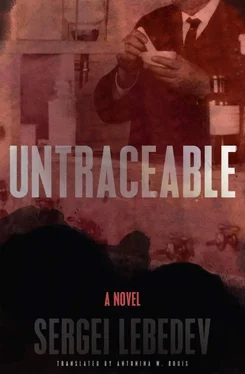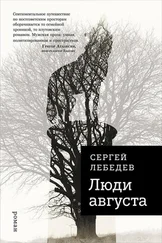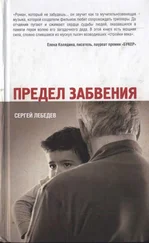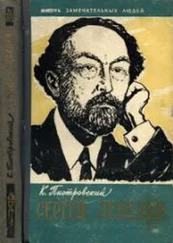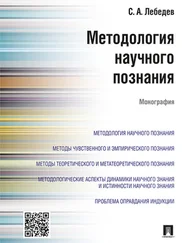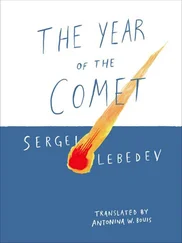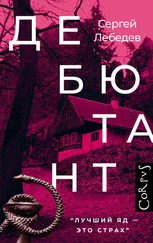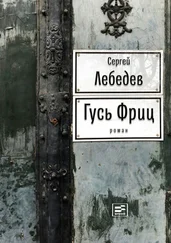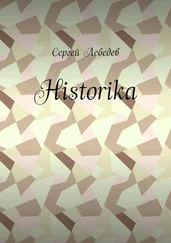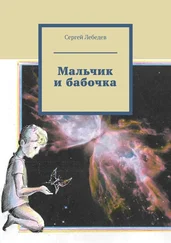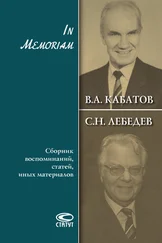Сергей Лебедев - Untraceable
Здесь есть возможность читать онлайн «Сергей Лебедев - Untraceable» весь текст электронной книги совершенно бесплатно (целиком полную версию без сокращений). В некоторых случаях можно слушать аудио, скачать через торрент в формате fb2 и присутствует краткое содержание. Город: New York, Год выпуска: 2021, ISBN: 2021, Издательство: New Vessel Press, Жанр: Современная проза, на английском языке. Описание произведения, (предисловие) а так же отзывы посетителей доступны на портале библиотеки ЛибКат.
- Название:Untraceable
- Автор:
- Издательство:New Vessel Press
- Жанр:
- Год:2021
- Город:New York
- ISBN:978-1-939931-90-0
- Рейтинг книги:3 / 5. Голосов: 1
-
Избранное:Добавить в избранное
- Отзывы:
-
Ваша оценка:
- 60
- 1
- 2
- 3
- 4
- 5
Untraceable: краткое содержание, описание и аннотация
Предлагаем к чтению аннотацию, описание, краткое содержание или предисловие (зависит от того, что написал сам автор книги «Untraceable»). Если вы не нашли необходимую информацию о книге — напишите в комментариях, мы постараемся отыскать её.
Untraceable — читать онлайн бесплатно полную книгу (весь текст) целиком
Ниже представлен текст книги, разбитый по страницам. Система сохранения места последней прочитанной страницы, позволяет с удобством читать онлайн бесплатно книгу «Untraceable», без необходимости каждый раз заново искать на чём Вы остановились. Поставьте закладку, и сможете в любой момент перейти на страницу, на которой закончили чтение.
Интервал:
Закладка:
Now the container was in his home safe. The opaque bottle of men’s toilet water, long out of fashion and no longer produced, an eccentricity of a gentleman averse to change in his habits.
Kalitin took that shirt with him to the hospital for his checkup. When he was released, he put it on, a talisman from the past.
He looked at himself several times in the rearview mirror, trying to find signs of malevolent changes, wanting to compare his faces in the long enfilade of time. But he had only his present self for comparison. The old photographs were in his abandoned apartment. The investigators would have confiscated them and added them to his file.
He didn’t take any new photographs. He tried to avoid being photographed, even in random tourist shots. Looked out for the omnivorous cars taking panoramic street photos for Google Maps. The video cameras in airports and train stations. That was the recommendation they made, since his doctors did not want him to have plastic surgery. Kalitin found an attenuated but precious pleasure in obedience, which he had felt more vividly in his former life when he filled out secret forms in accordance with instructions.
Now he regretted not having photos from the past, it was as if the record of his activity had not been saved in a computer game and he was left unable to recall his own image. There were no subjects that had known him before. Kalitin thought about his old home, now covered with a patina of estrangement in his memory. The fingerprint men must have tested all the smooth surfaces, taken the impressions, since the investigators did not know for sure whether he had run away, or vanished, or had been kidnapped. And then what? What happened to the furniture? Did they take it away, throw it out? The couch, the stupid foldout couch with creaking springs where Vera conceived their unborn child… Kalitin felt the news of imminent demise squashing, chewing through all lines of defense, gradually turning his thoughts toward possible death.
Home, he had to get home. Hide behind the solid walls. Rest. Gather strength. There was one more flight ahead.
The turnoff from the highway. The road led to a wide valley. The city outskirts began. A garden center with a display of plants; chubby, red-cheeked gnomes in caps; and stout faceless nymphs, covered in road dust. Supermarket. Park.
The central high street. Trolley coming from the train station. Cafe, kebab house. On the right, the cathedral, a large cathedral for a small city that had grown rich on the salt deposits in surrounding mountains, a city that worshipped salt but did not forget the church. The deposits were exhausted and abandoned: the last of the salt had been eaten with soup by the Kaiser’s soldiers. A miner’s body turned to stone was exhibited in the regional museum—put to work for the city even after his death, bringing in entrance fees. A small steam train drove children through a nearby tunnel; during the war, the locals used it as a bomb shelter, for the train station here was an important junction.
The city was coming to an end. The road headed up the valley slope. Here he knew who owned the fields, whose cows were grazing on the slope, whose horses were in the paddock.
Ruins of a water mill, a restaurant that serves roast pork and baked trout. The bright tiles of new roofs on village houses, floating in saccharine flower gardens. Smooth turn along a low cliff. A church on the stone ledge carved by a glacier that crept down into the valley a thousand years ago. The ancient church rejecting the confectionary luxury of the city cathedral, compressed by heavy, disproportional buttresses, which had collapsed and been rebuilt, retaining traces of various layers of brickwork. Below were enormous round boulders, clumsily worked stones, then neat rectangular blocks, and above them dark, almost soot-black, brick. The roof made of flat shale slabs was covered with moss. The cross tilted to one side. The carved stained-glass sun over the main entrance had dimmed. Beyond the fence—the cemetery arborvitae, the sagging headstones of salt magnates, rusted crosses. Even neglected and desolate, the church still amazed Kalitin with its grim, sleeping power; sometimes he compared himself to it and thought that their proximity was no accident.
Kalitin looked back at the road, just in time. Around the bend, hidden by the cliff, Pastor Travniček was slowly crossing the road.
He had arrived in these parts about six years before Kalitin. They said that Travniček had served in big cities, was considered on track to become a bishop. But suddenly he ended up here, in a forsaken corner, on an ancient mountain border, near a city with exhausted salt deposits, in a village where the old were dying and the young—those who had not moved to greener pastures—rarely went to church.
Kalitin knew what had happened. He liked the knowledge, because it confirmed that the church was merely an institution, and a very earthly one at that.
Travniček was a monster. He had suffered a rare skin disease, perhaps caught a virus, which was the eternal risk of working in densely populated areas, amid microparticles of other people’s skin, other people’s breath—and his face had turned to stone, a bumpy, lichen mask.
They exiled the monster, thought Kalitin, so he would not scare parishioners, not ruin the solemn ritual with his face so like a humanized lizard, his snakelike gaze beneath scaly lids.
Even now, with one foot in the grave, Kalitin still felt a fastidious gratitude that the pastor had taken on the horrible but singular misery that could have stricken any other person.
Hearing the car, Travniček turned. The pastor always turned, bringing his face in the other’s field of vision so tactfully that Kalitin was revolted by his humility. Kalitin, despite himself, despite his scorn for faith, felt in Travniček a power similar to the one slumbering in the church where he served. He wondered what this man, capable of living placidly with a troll’s face, was doing as a priest, among all these pious nonentities?
The pastor tried to wave down Kalitin. Kalitin opened his hands to show he couldn’t stop; it was rude, but he was in a hurry and someone else would give the pastor a ride. Then Kalitin remembered that Travniček had a car, not a big truck but a new compact SUV. Maybe it was broken? Kalitin considered backing up but the road was already going downhill before flying up the hill, where he would see the church in the rearview mirror for the last time, and then he would be on the dusty, unpaved road, apple trees, hills, hunter’s huts on the slopes… Home.
Refuge.
It was only then that he realized how desperately he wanted to be there.
Kalitin was proud that he had guessed right away, had sensed the essence of his future sanctuary immediately.
They had suggested he move to a rural area, where all the residents knew one another and would easily notice an outsider. Kalitin, used to a closed city, reluctantly looked at a few places. There weren’t many offers. People rarely changed their homes and fates in such areas. All the houses for sale were old farmhouses intended for large, no longer present families. They were crowded too close to neighbors. There was something pathetic and bewildering about them. It seemed to him that the houses themselves and not the bankrupt owners had suffered a life-changing collapse, and the connectivity of things had vanished from nails, cement, and spackling.
Kalitin was ready to go back. But in the last town, the real estate agent, a thin and severe man of seventy or so, listened to his evasive explanation, intentionally ungrammatical, about wanting peace and quiet to finish his research, and then started his long green Mercedes, the size of a hearse, saying he had a suitable house.
Kalitin was surprised that the agent must have understood more about him than he had wanted to reveal. In the vulnerable moment of moving, in the moment of a forced choice limited by time and cash, a person will show a little of his true self. Given his profession—finding houses, transforming clients’ secret wishes into walls and roofs, locating protection from displaced fears and hidden phobias, from a dangerous past—the real estate agent guessed what Kalitin was and what he needed as a defector.
Читать дальшеИнтервал:
Закладка:
Похожие книги на «Untraceable»
Представляем Вашему вниманию похожие книги на «Untraceable» списком для выбора. Мы отобрали схожую по названию и смыслу литературу в надежде предоставить читателям больше вариантов отыскать новые, интересные, ещё непрочитанные произведения.
Обсуждение, отзывы о книге «Untraceable» и просто собственные мнения читателей. Оставьте ваши комментарии, напишите, что Вы думаете о произведении, его смысле или главных героях. Укажите что конкретно понравилось, а что нет, и почему Вы так считаете.
